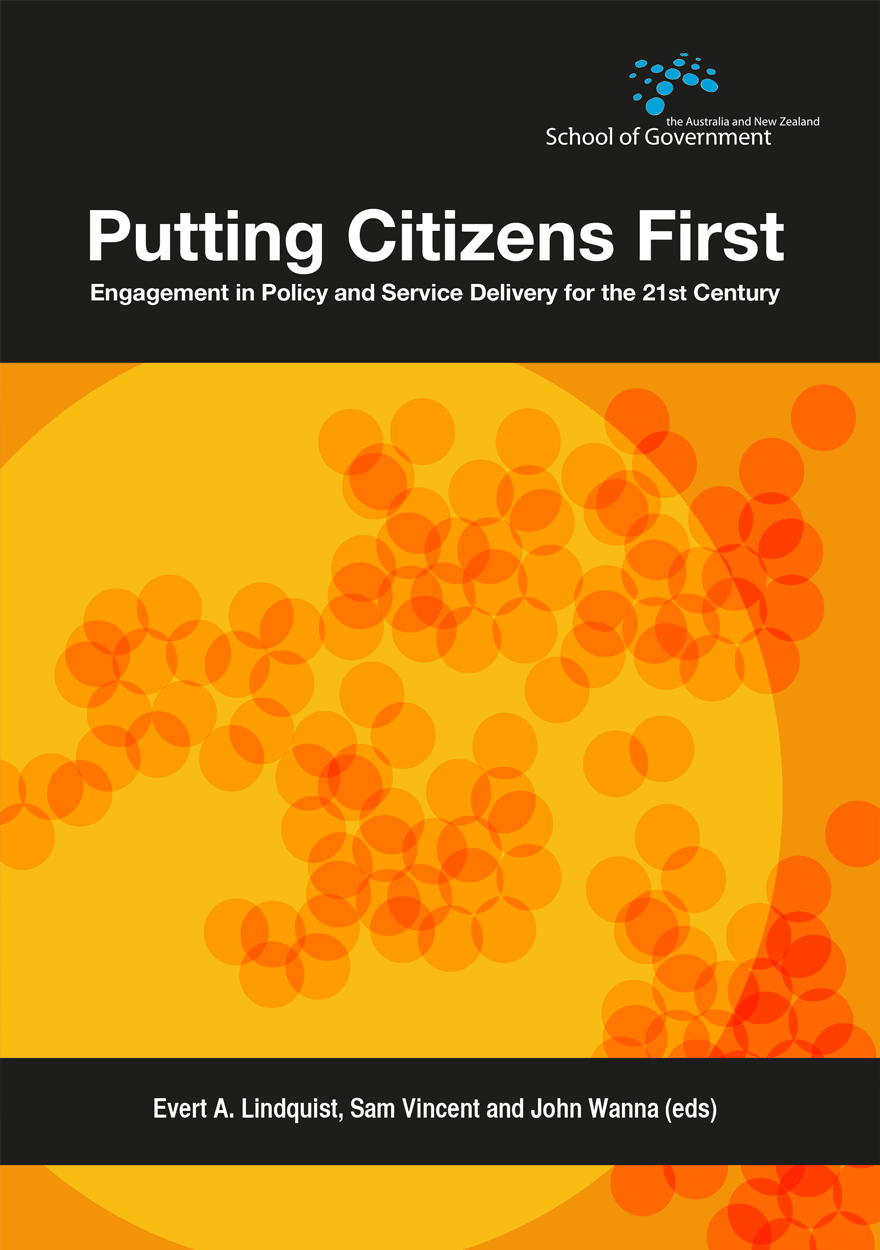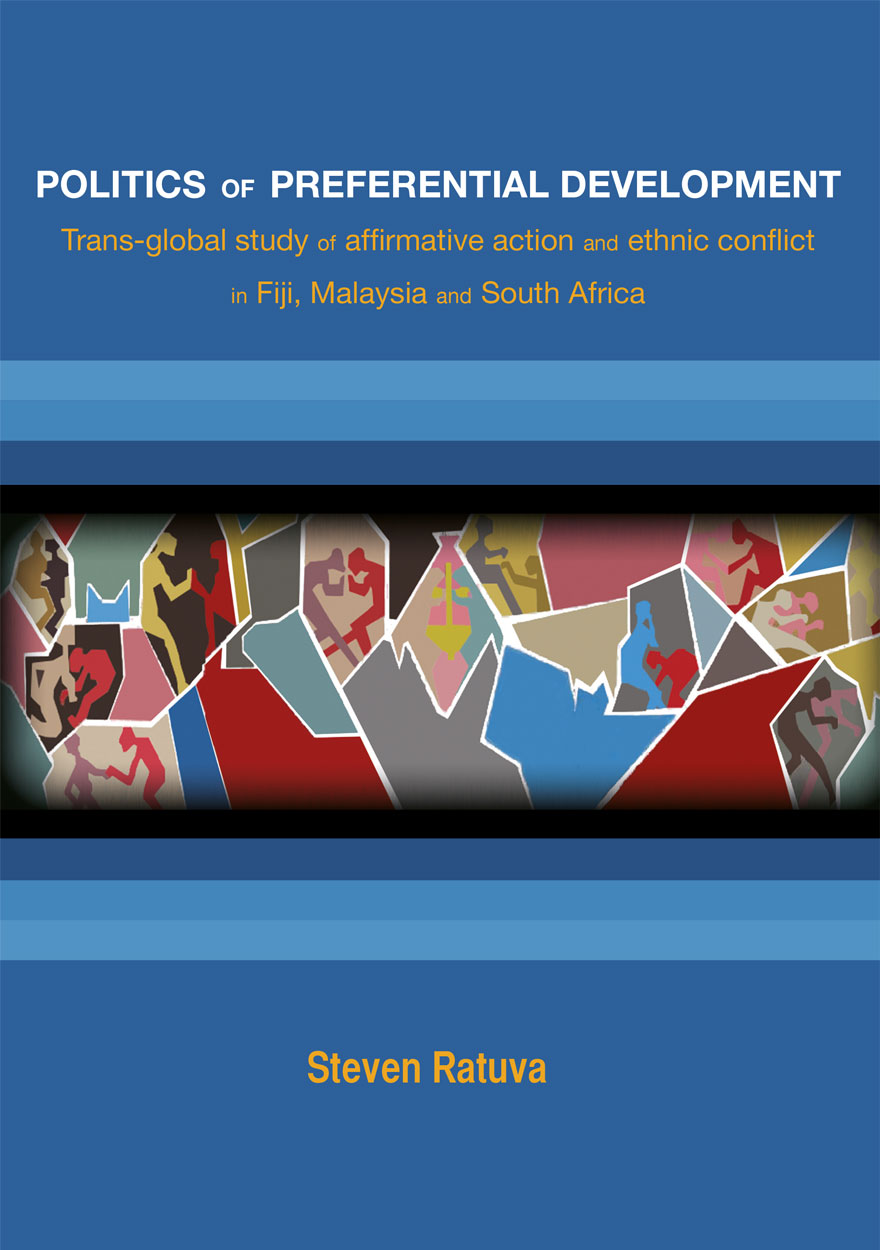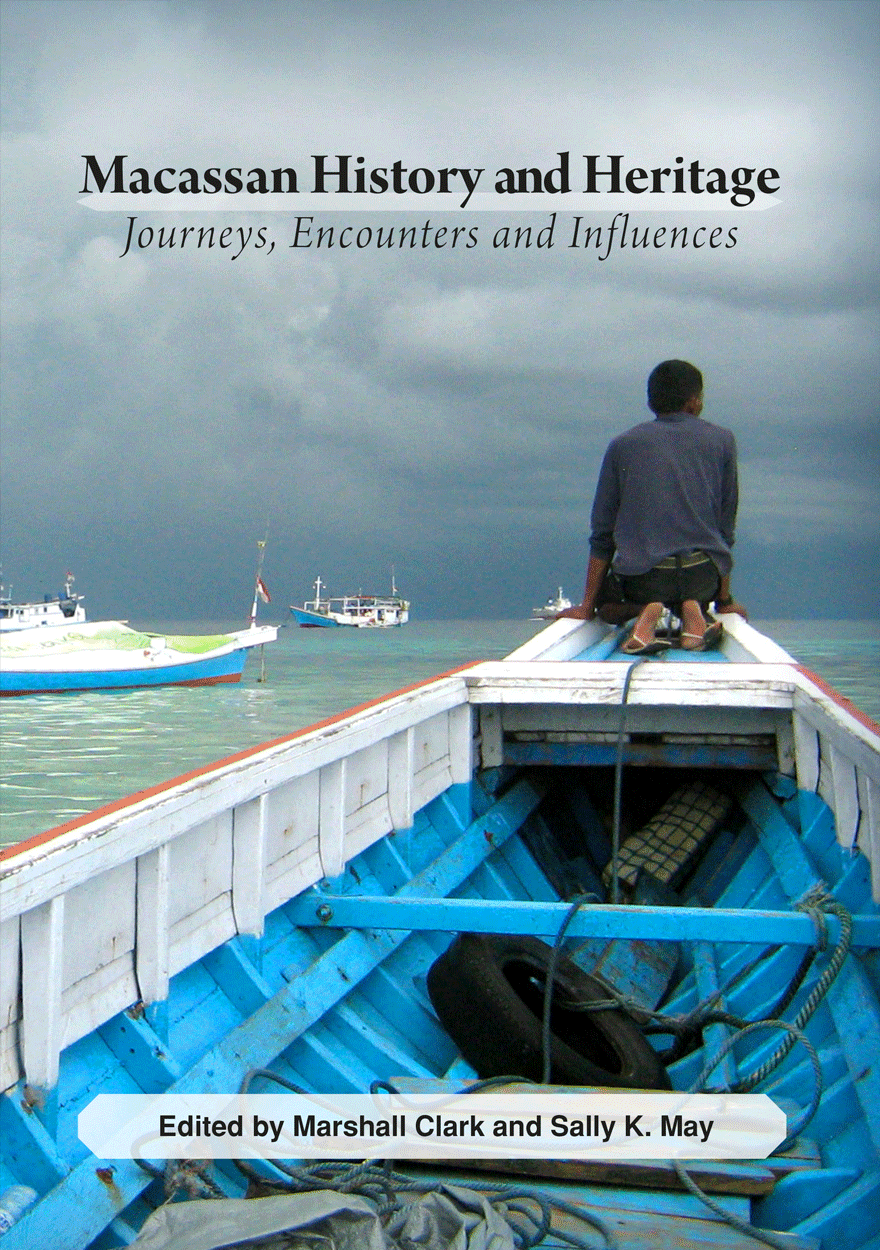Books
Browse or search ANU Press' range of books or find out more about the publications' authors and co-publishers. Download the book for free or buy a print-on-demand copy.
Displaying results 461 to 470 of 780.

Making Change Happen »
Black and White Activists talk to Kevin Cook about Aboriginal, Union and Liberation Politics
Authored by: Kevin Cook, Heather Goodall
Publication date: September 2013
This book is a unique window into a dynamic time in the politics and history of Australia. The two decades from 1970 to the Bicentennial in 1988 saw the emergence of a new landscape in Australian Indigenous politics. There were struggles, triumphs and defeats around land rights, community control of organisations, national coalitions and the international movement for Indigenous rights. The changes of these years generated new roles for Aboriginal people. Leaders had to grapple with demands to be administrators and managers as well as spokespeople and lobbyists. The challenges were personal as well as organisational, with a central one being how to retain personal integrity in the highly politicised atmosphere of the ‘Aboriginal Industry’. Kevin Cook was in the middle of many of these changes – as a unionist, educator, land rights campaigner, cultural activist and advocate for liberation movements in Southern Africa, the Pacific and around the world. But ‘Cookie’ has not wanted to tell the story of his own life in these pages. Instead, with Heather Goodall, a long time friend, he has gathered together many of the activists with whom he worked to tell their stories of this important time. Readers are invited into the frank and vivid conversations Cookie had with forty-five black and white activists about what they wanted to achieve, the plans they made, and the risks they took to make change happen.
“You never doubted Kevin Cook. His very presence made you confident because the guiding hand is always there. Equal attention is given to all. I am one of many who worked with Cookie and Judy through the Tranby days and in particular the 1988 Bicentennial March for Freedom, Justice and Hope. What days they were. I’m glad this story is being told.”
— Linda Burney, MLA New South Wales
“Kevin Cook was a giant in the post-war struggle for Aboriginal rights. His ability to connect the dots and make things happen was important in both the political and cultural resurgence of the 1970s onwards.”
— Meredith Burgmann, former MLC, New South Wales
“Kevin has had a transformative effect on the direction of my life and the lives of so many other people. This book is an important contribution to understanding not only Kevin’s life but also the broader struggles for social and economic justice, for community empowerment and of the cooperative progressive movement. It will greatly assist the ongoing campaign for full and sustainable reconciliation.”
— Paddy Crumlin, National Secretary, Maritime Union of Australia
“Cookie has made great contributions in enhancing the struggles of our people. He is a motivator, an astute strategist, and an excellent communicator with wonderful people skills. It’s a pleasure to be able to call him a mate and a brother.”
— John Ah Kit, former MLA, Northern Territory
For more information on Aboriginal History Inc. please visit aboriginalhistory.org.au.

Breaking Japanese Diplomatic Codes »
David Sissons and D Special Section during the Second World War
Edited by: Desmond Ball, Keiko Tamura
Publication date: September 2013
During the Second World War, Australia maintained a super-secret organisation, the Diplomatic (or ‘D’) Special Section, dedicated to breaking Japanese diplomatic codes. The Section has remained officially secret as successive Australian Governments have consistently refused to admit that Australia ever intercepted diplomatic communications, even in war-time.
This book recounts the history of the Special Section and describes its code-breaking activities. It was a small but very select organisation, whose ‘technical’ members came from the worlds of Classics and Mathematics. It concentrated on lower-grade Japanese diplomatic codes and cyphers, such as J-19 (FUJI), LA and GEAM. However, towards the end of the war it also worked on some Soviet messages, evidently contributing to the effort to track down intelligence leakages from Australia to the Soviet Union.
This volume has been produced primarily as a result of painstaking efforts by David Sissons, who served in the Section for a brief period in 1945. From the 1980s through to his death in 2006, Sissons devoted much of his time as an academic in the Department of International Relations at ANU to compiling as much information as possible about the history and activities of the Section through correspondence with his former colleagues and through locating a report on Japanese diplomatic codes and cyphers which had been written by members of the Section in 1946. Selections of this correspondence, along with the 1946 report, are reproduced in this volume. They comprise a unique historical record, immensely useful to scholars and practitioners concerned with the science of cryptography as well as historians of the cryptological aspects of the war in the Pacific.
“This publication fills an important gap in the present available knowledge concerning code-breaking in Australia during World War II. It also gives overdue recognition to the important contribution made by David Sissons to this subject”.
— Professor John Mack, School of Mathematics and Statistics, University of Sydney.

Election 2007 »
The Shift to Limited Preferential Voting in Papua New Guinea
Edited by: R.J. May, Ray Anere, Nicole Haley, Katherine Wheen
Publication date: September 2013
Papua New Guinea’s general election in 2007 attracted particular interest for several reasons. Not only did it follow what was widely acknowledged as the country’s worst election ever, in 2002 (in which elections in six of the country’s 109 electorates were declared to be ‘failed elections’), it was the first general election to be held under a new limited preferential voting system. It also followed the first full parliamentary term under the Organic Law on the Integrity of Political Parties and Candidates, which had been introduced in 2001 in an attempt to strengthen political parties and create a greater degree of stability in the national parliament, and was the first to embrace a ‘whole-of-government’ approach to electoral administration, through an Interdepartmental Electoral Committee. This volume provides an analysis of the 2007 election, drawing on the work of a domestic monitoring team organized through the National Research Institute, and several visiting scholars. It addresses key issues such as voter education, electoral administration, election security, the role of political parties, women as candidates and voters, the shift to limited preferential voting, and HIV transmission, and provides detailed accounts of the election in a number of open and provincial electorates. It is generally agreed that the election of 2007 was an improvement on that of 2002. But problems of electoral administration and voting behaviour remain. These are identified in this volume, and recommendations made for electoral reform.

Putting Citizens First »
Engagement in Policy and Service Delivery for the 21st Century
Publication date: August 2013
This book explores the ways in which governments are putting citizens first in their policy-making endeavours. Making citizens the focus of policy interventions and involving them in the delivery and design is for many governments a normative ideal; it is a worthy objective and sounds easy to achieve. But the reality is that putting citizens at the centre of policy-making is hard and confronting. Are governments really serious in their ambitions to put citizens first? Are they prepared for the challenges and demands such an approach will demand? Are they prepared to commit the time and resources to ensure genuine engagement takes place and that citizens’ interests are considered foremost? And, more importantly, are governments prepared for the trade-offs, risks and loss of control such citizen-centric approaches will inevitably involve?
The book is divided into five parts:
setting the scene: The evolving landscape for citizen engagement
drivers for change: Innovations in citizen-centric governance
case studies in land management and Indigenous empowerment
case studies in fostering community engagement and connectedness
case studies engaging with information technology and new media.
While some chapters question how far governments can go in engaging with citizens, many point to successful examples of actual engagement that enhanced policy experiences and improved service delivery. The various authors make clear that citizen engagement is not restricted to the domain of service delivery, but if taken seriously affects the ways governments conduct their activities across all agencies. The implications are enormous, but the benefits to public policy may be enormous too.

Ted Freeman and the Battle for the Injured Brain »
A case history of professional prejudice
Authored by: Peter McCullagh
Publication date: August 2013
This book recounts some experiences of young Australians with catastrophic brain injuries, their families and the medical system which they encountered. Whilst most of the events described occurred two to three decades ago they raise questions relevant to contemporary medical practice.
The patients whose stories are told were deemed to be ‘unsuitable for rehabilitation’ and their early placement in nursing homes was recommended. In 2013, it is time to acknowledge that the adage of ‘one size fits all’ has no place in rehabilitation in response to severe brain injury. Domiciliary rehabilitation, when practicable, may be optimal with the alternative of slow stream rehabilitation designed to facilitate re-entry into the community.
Patients’ families were impelled to undertake heroic carers’ commitments as a reaction to nihilistic medical prognoses. It is time for the Australian health care system to acknowledge those commitments, and the budgetary burden which they lift from the system by providing family members with support to retrieve career opportunities, most notably in education and employment, which have been foregone in caring.
Medical attendants repeatedly issued negative prognoses which were often confounded by the patient’s long term progress. Hopefully, those undertaking the acute care of young people with severe brain injury will strive to acquire an open mind and recognise that a prognosis based on a snapshot observation of the patient, without any longer term contact provides a flawed basis for a prognosis. The story of these patients and of Dr Ted Freeman has wider implications.

China: A New Model for Growth and Development »
Edited by: Ross Garnaut, Cai Fang, Ligang Song
Publication date: July 2013
The Chinese economy is undergoing profound change in policy and structure. The change is necessary to increase the value of growth to the Chinese community, and to sustain growth into the future. The changes are so comprehensive and profound that they represent a new model of Chinese economic growth. This book describes the replacement of an old uninhibited investment expansion model of growth, by transition to modern economic growth and provides insights into recent changes and where they are likely to lead. These include requirements for building the new institutions including its public finances for future growth, adjustments in its savings, industry and agriculture, changes in its demographic structure, business environment, and pattern of rural-urban migration, prospects for ‘green growth’, its energy policy trilemma and the climate change mitigation strategy, and changes for China’s interaction with the international economy through its overseas investment and trade in high tech products. China’s adoption of a new model of economic growth is of immense importance to people in China and everywhere. This book is an early attempt to take a close look at many of the features of the new model.

China: A New Model for Growth and Development (Chinese version) »
中国长期增长与发展的新战略: 责任与启示
Authored by: Ross Garnaut, 蔡 昉 宋立刚
Publication date: July 2013
中国经济正经历着政策和结构方面的深刻变革. 这种变革对于提高中国 社会的增长绩效、 保持未来中国经济的发展潜力都很有必要. 成功的经济发展改变了中国传统的增长模式, 也给经济发展带来了压力, 而这种压力正是变革的内驱力之一. 近年来, 劳动力短缺及真实工资迅速上涨给中国经济的传统模式带来了巨大挑战, 使得资源和收入分配、自然环境、经济增长率、储蓄率、 投资率与国际资本流动等都有所变化. 原有的增长模式在过去取得了巨大的成功, 也引发了上文所述的种种变化, 而国家政策层面上的改革亦会改善现状, 使中国的收人分配体系更加公平, 国内环境和国际环境更加有利于中国经济的发展.
Chinese version of this book is available from this Social Science and Academic Press.

Discretion and Public Benefit in a Regulatory Agency »
The Australian Authorisation Process
Authored by: Vijaya Nagarajan
Publication date: July 2013
This book explores the manner in which a variety of public benefits such as environmental protection and consumer safety have been accommodated through the authorisation process within competition law and policy in Australia. While the regulator’s use of its discretion can be explained as a triumph of practice over theory, this book explores the potential for competition principles to be imbued by the wider discourses of democratic participation and human rights. In doing so it makes a significant contribution to the Australian competition policy as well as reconceptualising the way in which discretion is used by regulators.
… a very important and creative contribution to the literatures on both business regulation in general and Australian competition and consumer protection law in particular. It pays special attention to an everyday regulatory function that is often ignored in scholarship. And it is very important in challenging—on both empirical and normative policy oriented grounds—a narrowly economic approach to competition law, and proposing an alternative understanding and practice for the public benefit test in ACCC authorisations.
— Professor Christine Parker
The data Vij Nagarajan has analysed is quite unique in its focus. It is a kind of data and analysis that has not been completed before in the international literature. It is well written, theoretically sophisticated and incisive in its policy analysis.
— John Braithwaite

Politics of preferential development »
Trans-global study of affirmative action and ethnic conflict in Fiji, Malaysia and South Africa
Authored by: Steven Ratuva
Publication date: July 2013
The book is a critical examination of affirmative action, a form of preferential development often used to address the situation of disadvantaged groups. It uses a trans-global approach, as opposed to the comparative approach, to examine the relationship between affirmative action, ethnic conflict and the role of the state in Fiji, Malaysia and South Africa. While affirmative action has noble goals, there are often intervening political and ideological factors in the form of ethno-nationalism and elite interests, amongst others, which potentially undermine fair distribution of affirmative action resources. The book examines the affirmative action philosophies and programs of the three countries and raises pertinent questions about whether affirmative action has led to equality, social justice, harmony and political stability and explores future possibilities.
Steven Ratuva provides a brilliant critical study, not just of affirmative action policy and practice in three very different postcolonial contexts, but of the very complex matters of principle, justification and ideology that are involved more generally. It is an invaluable contribution to the literature on this important topic.
— Dr Stephanie Lawson, Professor of Politics and International Relations, Macquarie University.
Scholarly and provocative, Steven Ratuva’s Politics of Preferential Development is an original and insightful comparative contribution to the growing literature on affirmative action around the world.
— Dr Ralph Premdas, Professor of Public Policy, University of West Indies; Former Professor, University of California Berkeley and University of Toronto.

Macassan History and Heritage »
Journeys, Encounters and Influences
Edited by: Marshall Clark, Sally K. May
Publication date: June 2013
This book presents inter-disciplinary perspectives on the maritime journeys of the Macassan trepangers who sailed in fleets of wooden sailing vessels known as praus from the port city of Makassar in southern Sulawesi to the northern Australian coastline. These voyages date back to at least the 1700s and there is new evidence to suggest that the Macassan praus were visiting northern Australia even earlier. This book examines the Macassan journeys to and from Australia, their encounters with Indigenous communities in the north, as well as the ongoing social and cultural impact of these connections, both in Indonesia and Australia.



